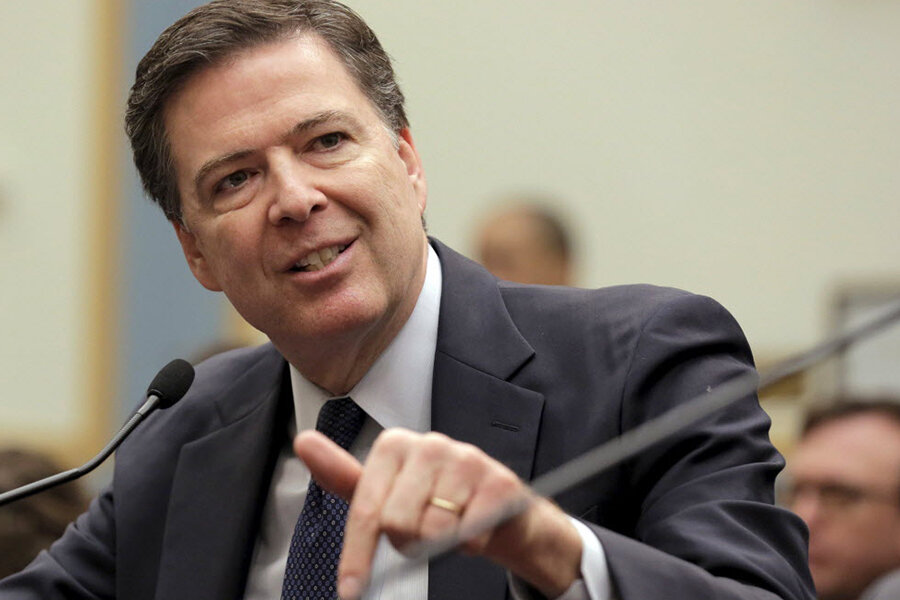US rebuts Apple claim on password reset in iPhone case
Loading...
| Washington
A decision to reset the password on an iCloud account tied to one of the San Bernardino attackers did not effectively thwart the investigation into the shooting, FBI officials said in a court filing Thursday as part of the Justice Department's ongoing encryption dispute with Apple Inc.
FBI Director James Comey testified before Congress last week that "there was a mistake" made when the FBI asked San Bernardino County, which owned the phone, to reset the password for an account tied to Syed Farook, who along with his wife killed 14 people in the December 2 shootings.
But in a sworn declaration Thursday, Chris Pluhar, an FBI agent involved in processing the evidence, said the password reset did not make a difference. Mr. Farook's iPhone had the iCloud backups turned off for his mail, photos, and notes, and aren't believed to be complete, Mr. Pluhar said.
The statement is aimed at rebutting earlier claims from Apple that said that if the FBI had not changed the iCloud password, its engineers could have helped investigators use a known – and therefore trusted – wireless connection to trick the iPhone from automatically backing up to iCloud.
The statement was part of a broader Justice Department filing aimed at encouraging a federal magistrate to affirm her decision last month to force Apple Inc. to help the FBI gain access to Farook's phone.
In it, federal prosecutors argued that the phone likely holds evidence of the eventual attack, and the government and community "need to know" what is on the device.
"There is probable cause to believe there is evidence of a terrorist attack on that phone, and our legal system gives this Court the authority to see that it can be searched pursuant to a lawful warrant," the filing states.
The brief, which sets the stage for a March 22 hearing in Southern California, marks a further escalation of rhetoric between the federal government and the technology company.
At issue is a February 16 order directing Apple to create specialized software that can bypass auto-erase functions on the phone and enable the FBI to remotely access the phone.
Apple has challenged the order as unlawful and in violation of its constitutional rights, but the Justice Department reiterated its argument that its request is only about one phone and that it will not be unduly burdensome for the company to comply. The government has said that Apple can hold onto the software during the entire process and destroy it once it's over.
"Under those specific circumstances, Apple can be compelled to give aid. That is not lawless tyranny. Rather, it is ordered liberty vindicating the rule of law," the department said.







